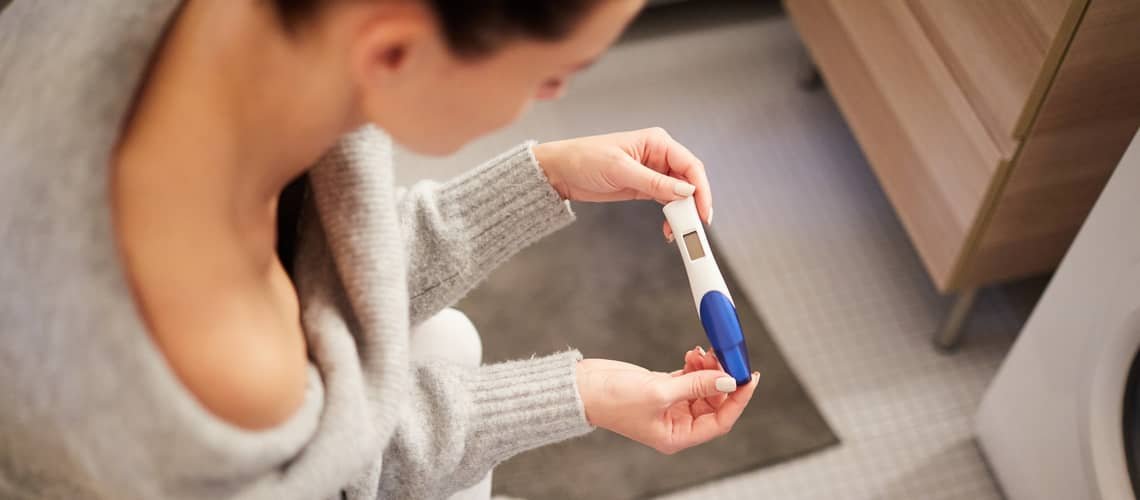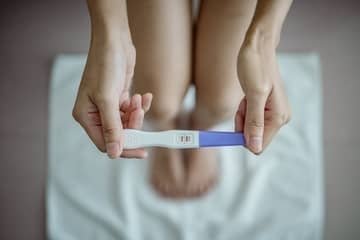
When to take a pregnancy test?
In the past, pregnancy tests had a relatively weak informational value, because the information about the number of lines or the result often did not correspond to reality. Today, high-quality pregnancy tests are very sensitive and can detect the level of changing hormones very reliably, while certain principles must be followed. In addition, there are several types of pregnancy tests with different sensitivity and reliability.
Pregnancy tests record the level of the hCG hormone in urine or blood. The hCG hormone is present in a woman's body in a higher concentration in the initial phase of pregnancy and subsequently rises. That is why the pregnancy test can record its increased level. In home conditions, digital or stick pregnancy tests are most often used, for which it is necessary to apply a stream of urine or to soak the given part in a sterile container with urine. The second option is strip pregnancy tests or cassette pregnancy tests. The sensitivity of pregnancy tests is determined by the value of mUI/ml hCG. The lower the number, the more sensitive the detection. A test with a sensitivity of 10 mIU/ml hCG is more sensitive than a test with a value of 25 or 50 mIU/ml hCG.
When to take a pregnancy test? It is important to realize that unprotected sexual intercourse does not automatically mean successful fertilization of a woman's egg by a man's sperm. Similarly, after fertilization, successful implantation of the fertilized egg in the uterus is necessary, which takes 6 to 14 days after successful fertilization. It is only during this period that there is a significant increase in the level of the hCG hormone. The most sensitive pregnancy tests can record its increased presence 7-8 days after potential fertilization - implantation of a fertilized egg in the uterus. A more reliable result will be obtained by performing the test approximately on the 14th day after unprotected intercourse. The date of fertilization may differ from the date of intercourse due to the lifespan of the sperm and the potential time of fertilization. Although women want to know the answer as soon as possible, the recommended time to find out the result with a pregnancy test is on the 7th to 10th day after the missed period, when the result should be authoritative. The test is best performed with morning urine, but it is not a strict principle due to the high sensitivity of today's tests.
The reliability of pregnancy tests ranges from 95 to 99%. The most reliable are digital pregnancy tests and blood pregnancy tests. The test result can be read differently depending on the type of test (positive - two strips, negative - one control strip, invalid - no control strip is displayed). It can cause confusion if the result is false positive or false negative. The reason may be, for example, the use of medications or other hormonal preparations. After displaying each result, it is recommended to repeat the pregnancy test in a few days.
Pridať komentár





